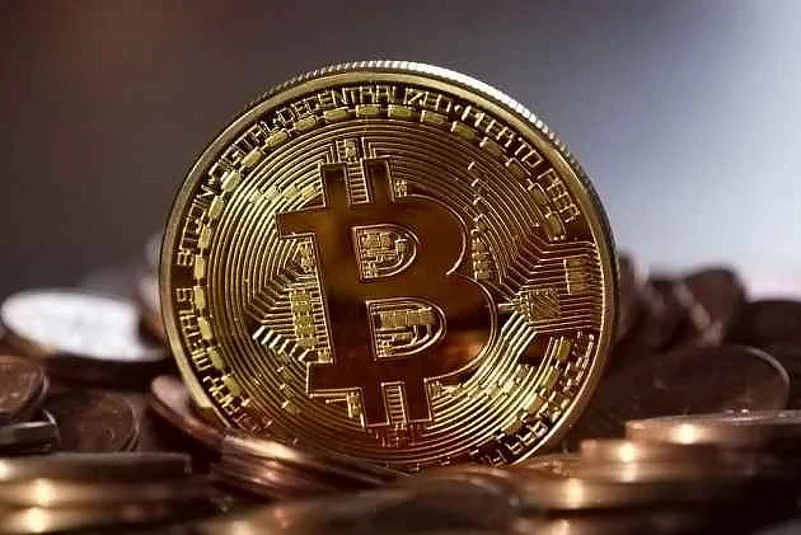After the RBI’s inconclusive fiat, the ministry of finance has further muddled the Bitcoin water by issuing an ambivalent statement saying crypto currency Bitcoins “are not backed by regulations hence risky but stops short of saying such investments are illegal.
The ministry on Friday issued a statement comparing the virtual currencies to ponzi scheme and warned people to stay away from virtual currencies such as bitcoin, which is not backed by any government regulations.
“There has been a phenomenal increase in recent times in the price of Virtual ‘Currencies’ (VCs) including Bitcoin, in India and globally. The VCs don’t have any intrinsic value and are not backed by any kind of assets. The price of Bitcoin and other VCs therefore is entirely a matter of mere speculation resulting in spurt and volatility in their prices,” the ministry said in a statement.
“There is a real and heightened risk of investment bubble of the type seen in pozi scheme which can result in sudden and prolonged crash exposing the investors, especially retail consumers losing their hard earned money. Consumers need to be alert and extremely cautious as to avoid getting trapped in such Ponzi schemes,” it added.
Bitcoin value has jumped 15 times in less than 12 months. Just for perspective, your ordinary bank fixed deposit will take 40 years to do so, stock market focussed mutual funds have taken about two decades while some stocks have done it in 10 years. Plain-and-simple raw greed, the fear of missing out on a lucrative opportunity, and a near gravity-defying climb have created a tsunami of real demand in the minuscule Bitcoin pond leading to waves shaking the very foundation of the fiat money world. With more number of people taking nibbles at this digital currency, understanding and securing the safety of this 'money alternative' is very important.


Neither did the Finance ministry statement nor the previous RBI statement say Bitcoins are illegal. All it does is warn the customers of the risks involved.
“RBI has also clarified that it has not given any licence/ authorization to any entity/ company to operate such schemes or deal with Bitcoin or any virtual currency. The Government also makes it clear that VCs are not legal tender and such VCs do not have any regulatory permission or protection in India. The investors and other participants therefore deal with these VCs entirely at their risk and should best avoid participating therein,” it added.
But the users already are aware of the risks. Any platform that allows you to buy or sell Bitcoins makes the users give a nod to agreements that explicitly mention that the platform is not responsible or liable for disruption or cessation of services due either to regulatory, governmental or judicial actions and technical issues. Simply put, these platforms are not liable for any damage caused by any performance, error, defect, delay in transmission or operations, computer virus, and unauthorized access to the personal accounts.
At the moment, Bitcoins worth billions of dollars are floating around the world. With 16.72 million BTC in circulation out of the maximum supply of 21 million BTC, it has already sucked in quite a bit of public money. If governments and financial regulators indeed do not like this 'money alternative', they should swiftly move in and declare it illegal. In case, they want to keep it, honour the system and safeguard the belief of thousands of gullible investors who have invested money into Bitcoin. The more the delay, the greater are the chances of this tiger turning rogue.
Bitcoin's shroud of secrecy has proved to be magnetic. Nobody knows who invented it exactly. Bitcoin advocates swear that no one controls it, and it is this 'independence' that enthralls audiences often chained to their jobs for filthy lucre.
“As transactions of VCs are encrypted they are also likely being used to carry out illegal/subversive activities, such as, terror funding, smuggling, drug trafficking and other money-laundering Acts,” the Finance ministry warned users.
There is also the risk of loss of confidence in Bitcoin trading, a situation which would collapse the demand relative to the supply. For instance, the confidence might plunge in Bitcoin because of unexpected changes imposed by the software developers. Confidence might also go down if the anonymity of the system is compromised like what happened when Japan's Mt. Gox Bitcoin exchange failed. Cryptocurrencies being a digital asset are subject to known and unknown risks, malicious attacks and inadvertent losses. Bitcoin value nosedived by 50% between Dec 3 and Dec 18 in 2013 as the Mt. Gox, then the world's leading bitcoin exchange, reported approximately 850,000 bitcoins belonging to customers and the company were missing and likely stolen.


























